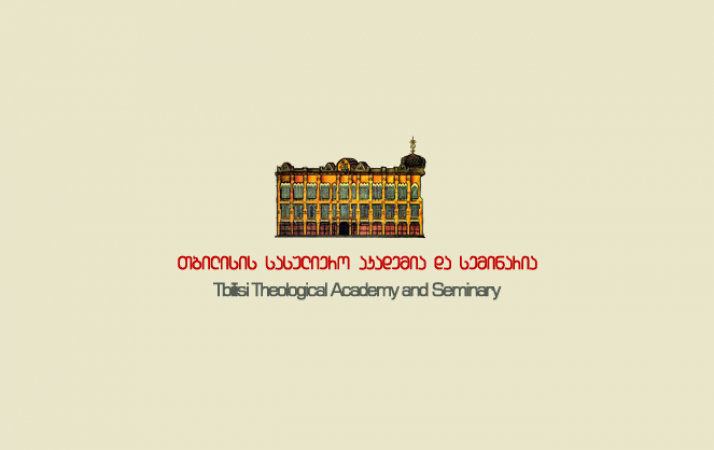On April 28, 2023, at 5:00 p.m.,
Rati Sturua, a doctoral student involved in the program of Dogmatic
Theology at the Tbilisi Theological Academy and Seminary, gave a
speech on the topic – “The Heresy of Melchizedekians”. Doctor of
Theology and Philology, Professor Edisher Chelidze is the
scientific supervisor of the dissertation topic.
Here are some important excerpts
from the speech:
“We find information about the
heresy of Melchizedekians in the works of the Holy Fathers:
According to Epiphanius of Cyprus, the mentioned heresy was
widespread in Egypt. The author of “Panarion” singles out several
types of manifestations of the heresy of Melchizedekians. At the
beginning of the work, Epiphanius of Cyprus speaks about the
heretics who ascribed “some supernatural power” to Melchizedek and
imagined him as superior to God the Son Himself. Others, the Holy
Father noted, identified Melchizedek with one of the hypostases of
the Holy Trinity, the Holy Spirit.
The next error is related to the
Samaritans’ misunderstanding of the personality of Melchizedek.
According to the Samaritans, Melchizedek is the son of Noah - Shem.
Such a rendering is inconsistent from a historical point of view
and, most importantly, contradicts the definitions of the Holy
Fathers which are recognized by the Church. The next exposure of
the error of Melchizedekians, which Epiphanius of Cyprus speaks
about, involves the identification of the person of Melchizedek
with God the Son before His Incarnation. Monk Mark opposes the same
form of heresy in his work – “About Melchizedek”. Likewise
Epiphanius, Mark in his writing confirms that on the one hand, the
heresy of Melchizedekians identifies Melchizedek with the Second
Hypostasis of the All Holy Trinity, the Son of God, before He
assumed the human nature, which is His Incarnation… The last form
of the manifestation of the heresy of Melchizedekians, which
Epiphanius of Cyprus discusses in his “Panarion”, according to the
author, is the most perverted form. The followers of this heresy
believed that the Melchizedek mentioned in the Holy Scriptures is
God the Father Himself”...
In his talk, the doctorate
student Rati Sturua identified three main stages in the history of
the heresy of Melchizedekians and noted:
"The first stage includes the
history of the origin of the heresy of Melchizedekians and its
formation in various forms. Hippolytus of Rome is the first to
inform us about the aforementioned in his anti-heretical work
“Philosophumena, or the Refutation of All Heresies”; and later,
based on the work of Hippolytus of Rome, Epiphanius of Cyprus
presents several types of the manifestations of the heresy of
Melchizedekians, in the 55th subchapter of “Panarion”. The second
stage involves the change of the name of the heresy of
Melchizedekians into “Athingani”, as Timothy of Constantinople
gives in his work “On Those Who Enter the Church”. This is the
first source in which the Melchizedekians are called Athingani. As
for the third stage of the heresy of Melchizedekians, Venerable
Theophanes the Confessor of Sigriane (cc 760-818) mentions the
Athingani grouped as yet with the other heresies in his work
“Chronograph” and calls them not Melchizedekians but “Athingani”.
However, according to the mentioned source, three characteristics
have already been identified in Athingani: The heretical teachings
of the Melchizedekians, the tradition of the Samaritans, and the
magical rituals of a certain foreign ethnic group practiced by the
renamed “Athingani”...
An interesting discussion took
place at the end of the seminar. Both students and professors
participated in it. The doctoral student Rati Sturua gave
interesting and exhaustive answers to the questions of the
participants.





